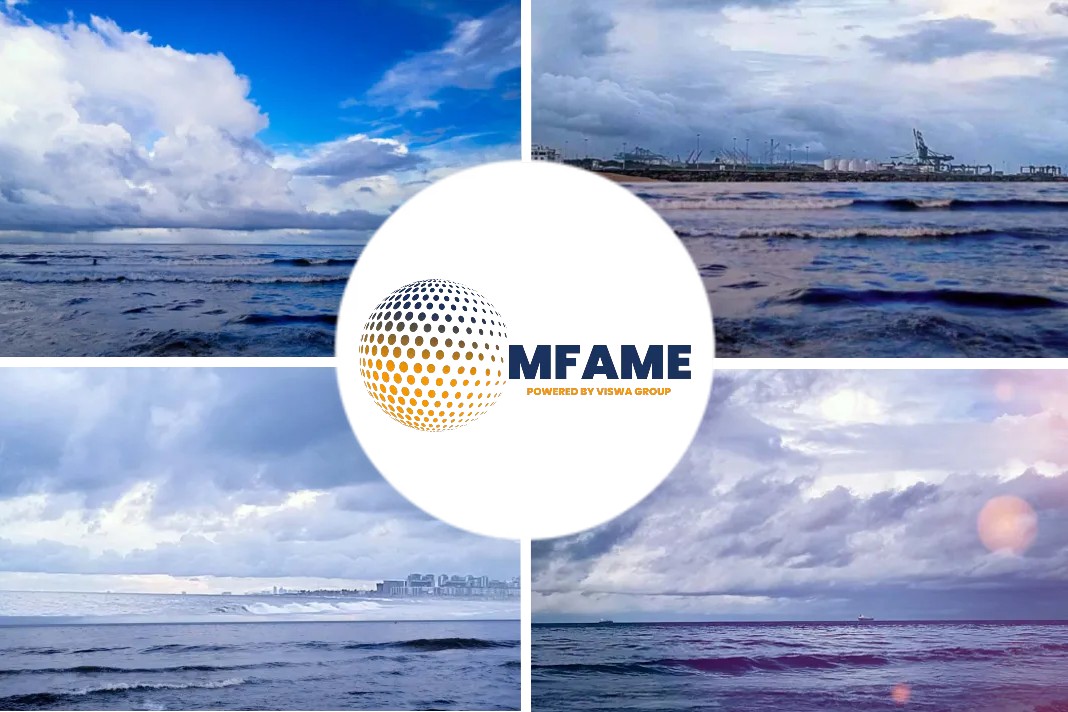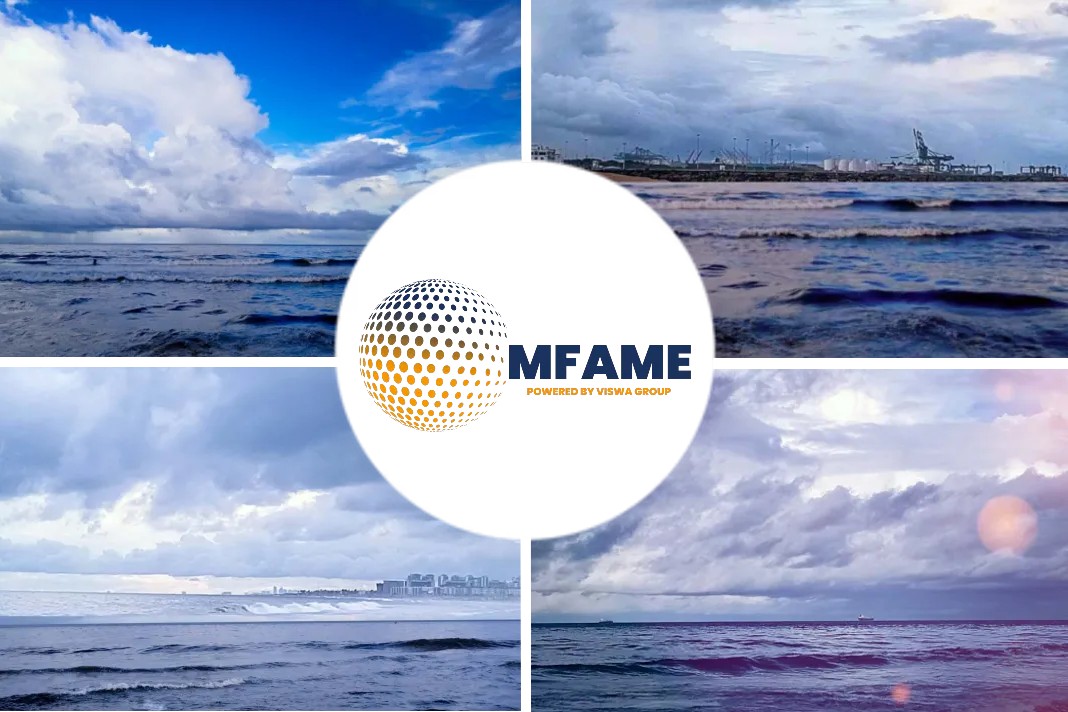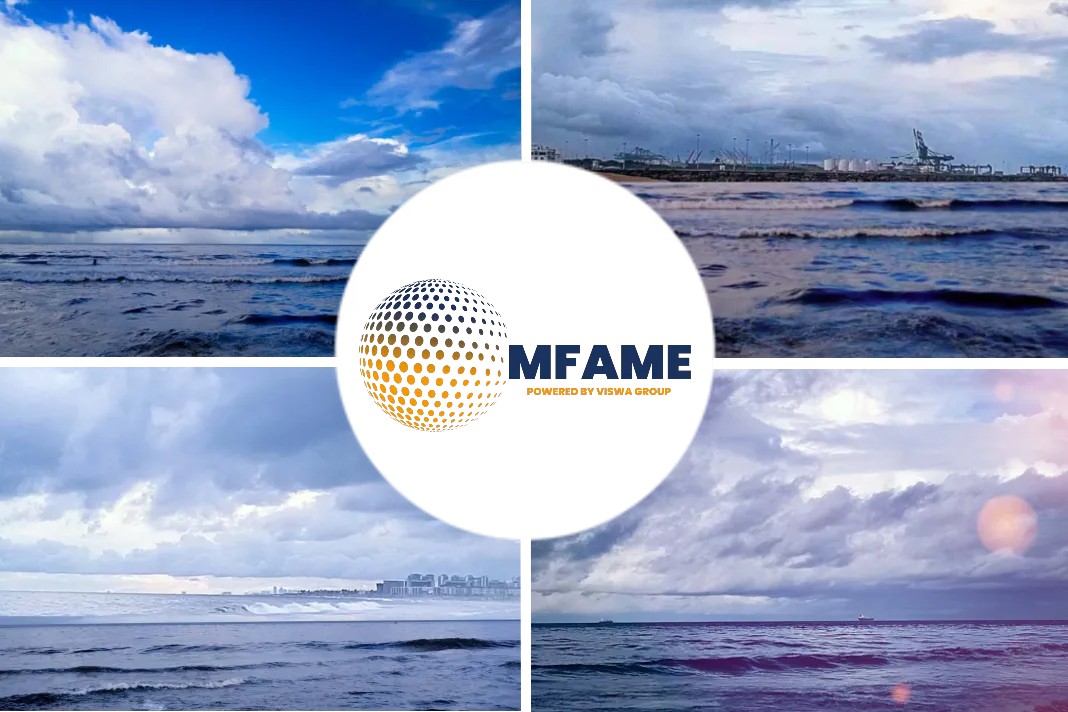- Carrying capacity of the world’s 60,000 largest ocean-bound vessels has increased from 800 million deadweight tons in the year 2000 to over 2 billion in 2020.
- At the moment, most of the world’s ships are registered in just a handful of nations.
- By registering in such offshore locations, these ‘flag states’ set the standard by which ships should be certified.
- Ships are essentially fronts for the oil industry’s waste, and masquerade themselves by carrying containers, goods and grain across the world.
- Panama has approximately 20% of the world’s shipping registered to it by deadweight tons, a good proxy for carbon emission from ships,
- Panama should be responsible for the 200 million tons of carbon dioxide emitted by ships registered in its jurisdiction.
- At $75 a ton, this means that Panama should be paying an additional $15 billion a year into global emission trading schemes.
Why isn’t Panama paying its fair share of 20% of all global shipping’s carbon emissions, reviews, Nishan Degnarain for Forbes.
Shipping: A booming industry!
In the 20 years since the year 2000, the global shipping fleet has increased by 250%.
Going into 2020, there were 61,100 large vessels in the world – mainly large ocean-going container ships, bulk carriers, oil tankers. While the number of vessels has remained relatively constant – around 60,000 – it has been the size of ships that have been ballooning.
The 250% growth figure since the year 2000 (or doubling since the year 2005), is calculated in deadweight tons, which is the usual shipping measure for how much weight it can carry, and a good proxy for ship size.
So the carrying capacity of the world’s 60,000 largest ocean-bound vessels has increased from 800 million deadweight tons in the year 2000 to over 2 billion in 2020, according to leading maritime industry analysts, Clarkson Research.
It is expected to grow by 50% again over the next decade.
Flags of convenience
At the moment, most of the world’s ships are registered in just a handful of nations.
- 50% of the world’s ships are registered in just 3 locations: Panama, Liberia and the Marshall Islands.
- 70% of the world’s ships are registered in 6 locations, the three above as well as Hong Kong, Singapore, and Malta.
It is this country cartel – similar to OPEC – that has a stranglehold on the global shipping industry, and has created dangerous situations for ship safety and sustainability. Sailors have died as a result of lower standards and countries have been devastated by oil spills from this.
Ship registration
By registering in such offshore locations, these ‘flag states’ set the standard by which ships should be certified. These ship registration locations are less expensive, have lower inspection standards and are highly risky for the environment and human safety.
To make matters worse, the ship registration jurisdictions do not even have the capabilities to inspect ships as they are legally required to do by the UN Agency that governs shipping (the London-based UN Agency called the International Maritime Organization or IMO).
Instead, they outsource this role to organizations called ‘class societies,’ which have all sorts of perverse revenue incentives to conduct safe inspections. They earn more revenue from their consulting activities than their non-profit auditing activities which was their core role in the first place.
It was precisely this sort of activity that led to the break-up of the big five accounting giants – Arthur Anderson, PricewaterhouseCoopers, Deloitte and Touche, KPMG, Ernst and Young – who were forced to split their auditing arms from their consulting arms, following the Enron financial fraud scandal in 2001 that cost investors $74 billion and introduced the Sarbanes-Oxley Act which came into force in 2005.
With shipping, the stakes could be much higher. More on this shortly.
Global shipping: Front for oil industry’s waste products
Climate is facing a double-whammy from flag states. First, they are the ones setting environmental standards in the UN Shipping Agency. Then, they have lax inspection standards.
So not only does global shipping have lower environmental standards than any other industry, but the regulators are not even properly enforcing these standards.
This deadly combination means that the global shipping industry acts as a global subsidy of half a trillion dollars a year on the entire oil industry. This is because ships pay for the extremely toxic sludge at the end of the oil refining process, and can burn this into the atmosphere outside of the scrutiny of the world’s eyes.
Ships are essentially fronts for the oil industry’s waste, and masquerade themselves by carrying containers, goods and grain across the world. In actual fact at any one moment, between 30% and 40% of global cargo that is being shipped, is actually oil or gas itself.
All of this is permitted by the ‘Flags of Convenience’ regime. So why aren’t these flags paying their fair share for climate change?
Climate change at large
In 2015, the world leaders agreed on the Paris Agreement on Climate Change, which was due to come in force in 2020. This agreement was supposed to set nationally defined parameters for each country to reduce their carbon emissions and ensure the world’s climate does not spiral out of control.
A high-profile UN report (IPCC 1.5C) gave the world just a decade – by 2030 – to alter course or face irreversible damage.
Rather than embrace this change, the global shipping industry – along with the global aviation industry – shocked the world. They unilaterally decided that they would opt out of this international agreement.
The global shipping industry became a pariah industry outside of international climate regulations that had been agreed on by Governments who represented populations in every country. This would not matter if the amount of pollutants were small. As we saw from the boom in the global shipping industry, they are not.
Shipping is estimated to emit over 1 billion tons of carbon dioxide a year. If it was a country, global shipping would be ranked 6th in the world in terms of amount of carbon dioxides emitted from its activities, just behind Japan.
The London School of Economics estimates there needs to be a carbon tax of $75 per ton by 2030 to meet the Paris Agreement and reflect the true cost of this pollution (there is a technical debate between taxes and carbon trading schemes, but let’s leave that aside for now).
So this means that there is essentially a $75 billion responsibility a year that global shipping should be paying but they are not.
Stricter inspection regime
Panama has approximately 20% of the world’s shipping registered to it by deadweight tons. This is a good proxy for the amount of carbon pollution being generated by ships under its responsibility.
- This means Panama should be responsible for the 200 million tons of carbon dioxide emitted by ships registered in its jurisdiction.
- At $75 a ton, this means that Panama should be paying an additional $15 billion a year into global emission trading schemes. Every single year.
- This is 23% of Panama’s entire GDP of $65 billion a year.
For comparison, Panama as a country emits 12 million tons a year (and is growing at 5% a year). Adding its responsible share of shipping, for whose lax standards it is responsible for, would increase Panama’s burden by 16 times to 212 million tons of carbon dioxide a year – the true reflection of what its lax standards is doing to global climate.
The same can be applied each year to:
- Liberia (150 million tons carbon dioxide valued at $11.2 billion compared to a GDP of $3 billion)
- Marshall Islands (140 million tons valued at $10.6 billion compared to a GDP of $0.2 billion)
- Hong Kong (110 million tons valued at $8 billion compared to a GDP of $360 billion)
- Singapore (75 million tons valued at $6 billion compared to a GDP of $360 billion)
- Malta (60 million tons valued at $5 billion compared to a GDP of $15 billion)
This is precisely the sort of accountability that has been missing from global shipping until now. And this does not even include all the other toxins that come from shipping such as harmful methane emissions, which is the issue with LNG powered vessels, and which need to a have a dollar amount attached to it.
If these countries cannot afford to regulate shipping, they should move out and allow responsible nations with the appropriate sustainability and safety standards take over. The cost to the world is too great.
Shipping crises in Panama
In just the last two months alone, three of the biggest shipping disasters have been caused by Panama-flagged vessels.
- Panama-flagged MT New Diamond, an oil supertanker that was heading from the Middle East to India but experienced an explosion off the coast of Sri Lanka on 3 September and risked spilling 2 million barrels across the pristine Indian Ocean coast.
- Panama-flagged Gulf Livestock 1, that headed straight into the eye of a typhoon on 2 September and led to the loss of 40 crew and 6000 cows (3 crew were rescued).
- Panama-flagged iron-ore giant ship, The Wakashio, that rammed into Mauritius’ 100,000 year old coral barrier reef in a network of highly protected national marine and coastal parks on 25 July, and spilled thousands of tons of toxic fuel that led to almost 50 whales and dolphins dying within days of the incident.
Panama’s rush to judgement that the responsibility must lie with the crew is hardly plausible when the Panamanian Maritime Authorities went into intricate details about how the captain and crew struggled with maneuvering the vessel due to adverse weather.
Nice story, but if they had only checked, Forbes had published a story three days earlier showing clear weather conditions, no evidence of maneuvering and the vessel slammed into the reef at a cruising speed of 11 knots. This was all available from publicly available data.
Flags of Convenience are dangerous
The Flags of Convenience regime is dangerous.
- It is dangerous for mariners – 40 lost their lives on the Panama-flagged Gulf Livestock 1.
- It is dangerous for nations where the ships were not even supposed to stop – both Mauritius and Sri Lanka are Indian Ocean islands that expect shipping to have the right standards in their vessels and take responsibility for the mess they create.
- It is also dangerous from a climate crisis perspective. The global shipping industry is not investing enough in non-fossil fuel alternatives and continue to dodge any real accountability.
The time for the Flag State regime has come to an end. The world is in a climate crisis. So is global shipping. Radical times call for radical measures. This is precisely why the G20 and the OECD was created.
- Canadian Prime Minister, Justin Trudeau put the ocean in his G7 2019 agenda at Charlevoix.
- French President Emmanuel Macron talked about putting nature at the center of its policies.
- The UK’s Boris Johnson has vowed to ‘build back greener’ post-Covid and Britain is host to the IMO as the only UN Agency based in the UK.
- Germany’s Angela Merkel has promised a lot on greener and cleaner transport fuels.
- The European Union have talked for years about clamping down on offshore tax havens and have a Blue Economy Taskforce.
- Australia cares about shipping safety around its large maritime territory.
- Even China has argued for more ambitious climate action.
- Who knows what the US election may yield in November (the US is a ‘Category A’ nation in the IMO Council – one of the most powerful status).
These are leaders from powerful nations that can bring about the change needed in global shipping – an industry that cannot be trusted to reform itself, and certainly not rely on Flags of Convenience to set global emission standards.
Did you subscribe to our daily newsletter?
It’s Free! Click here to Subscribe!
Source: Forbes






















